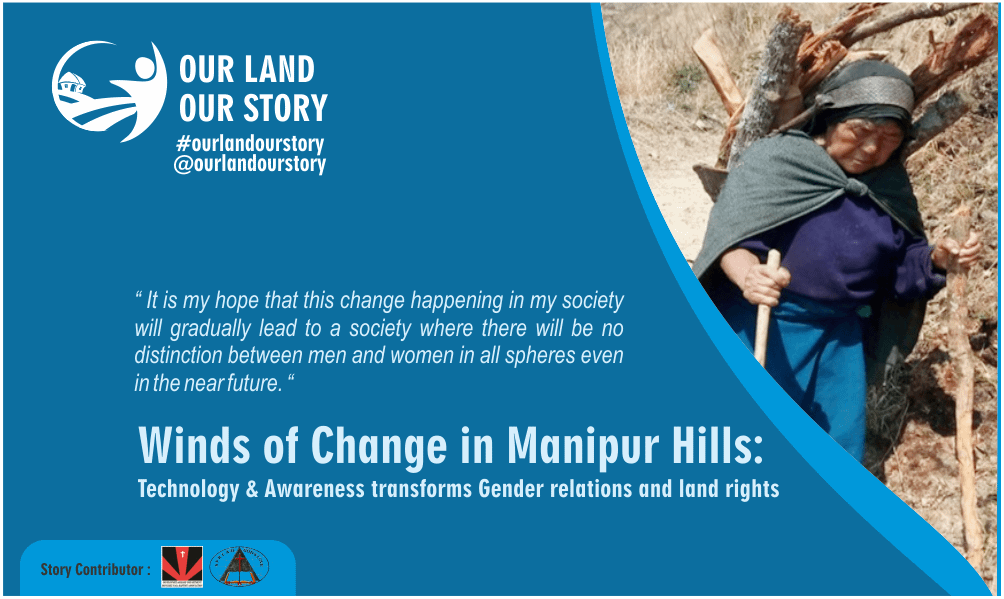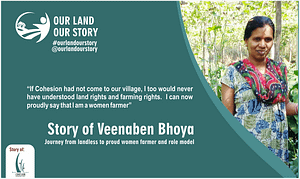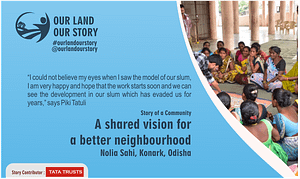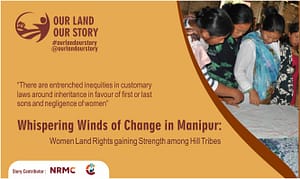
The present Ziumi which I live is like any typical village built on a lovely meadow. This is situated about 102 KMs from District Headquarter Senapati.
The great ancestors of Ziumi were with the ancestors of the Zeliangrong in all through their migrations down the ancient days from the South East Asia, and then migrated to Makhel to join with the rest of the Naga families. Their movement continued until they finally reached Makuilungdi which is considered the cradle of the Zeliangrong Cultures and Customs.
Like in any other Naga tribe, the Zeliangrong community is governed by the land lord who is actually the founder of the village. But there will be some cases where the land lord acts as merely a nominal head whereby giving all authorities powers to the village governing authority called the “Village Authority or Village Council”. This body of council works in a democratic principle. Socially the community is often divided into Clans. The village land is comprised of private land, community land and clan land. There are three major clans in the village, namely, 1) Hekwetdandbe Chame/Hau, 2) Tereing Chame, 3) Hefwang Chame.
Beside these three clans, Ziumi village had King (Hengwang) or headman from the clansmen of Nking chame, and there are to two Gaon Burras (village elders). These peoples and the elderly peoples from each clan looked after the social and political life of the village for harmonious living.
The major land use pattern in Ziumi village may be categorised as settlement, agriculture, forest and scrub. Settlement land covers areas under residential, educational, administrative, recreational, open spaces, places of worship, granaries, and „Duikhunram‟ (area of pool). Agriculture land occupies large area and is divided into jhum land which is a shifting cultivation area and settled or permanent agriculture which is under Wet terrace fields. Forest land occupies the largest area of the village land which is the preserved forest for maintaining the ecology.
Generally, in Zeliangrong community, land transfer is restricted unless it is inherited from the forefathers except all the Terrace or Wet Paddy fields developed and owned by every individual. Only this land is permissible for selling. The rest of the village lands belonged either to the clan or the community.
In general the property rights are vested only with the male members. Women are denied from inheritance as the female members change the clanship title to her husband on the day of their marriage. In times of death or divorce cases, women are generally left to decide whether she would live alone with her children or return to her paternal homes. If a woman returns home, she is given protection, shelters and lands either by her parents and relatives but have no rights over the land other than for temporary cultivation. A widow living with her children continues to enjoy the benefits in as much as the husband would be enjoying. Without any male child, she is generally deprived of these rights.
To give better status for the women of our village, the Rongmei Baptist Association had several discussions and meeting with the village elders and intellectuals of the village. The outcome of the discussion was that women shall be given rights over the land she cultivates. Thus, GPS mapping of lands on Homestead land, Horticulture, Jhum fileds, Terrace fields etc., were done. The objective of mapping is to provide Certificate of land holding for individual especially women of the village which should also be duly counter signed by the Village Authority.
Hence, by now at least 24% of women in my village, Ziumi will be having Land Certificate. This will provide security of livelihood for women and also they will be able to access Bank loans and other developmental activities. It will also provide clear demarcation of boundaries between two parties which will minimise conflict between same community and neighbouring village.
There is a tremendous emancipation of women rights with respect to restriction of Transfer of property rights. The work of Rongmei Baptist Association with the support from EED/BROT project has brought about wind of change to our community. It is my hope that this change happening in my society will gradually lead to a society where there will be no distinction between men and women in all spheres even in the near future.




